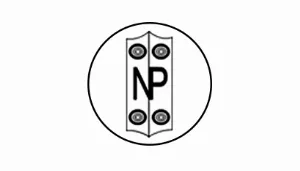Nagaland Pollution Control Board (NPCB) has issued guidelines for immersion of Durga Puja idols. In a statement, the board noted that traditionally, clay was used to make idols. However, over the years, plaster of Paris (PoP), which was lighter and cheaper, had become the favoured material to mould idols.
However, NPCB said PoP contained chemicals such as gypsum, sulphur, phosphorus, and magnesium, while the dyes used to colour these idols could also contain mercury, cadmium, arsenic, lead, and carbon. Plastic and thermocol (polystyrene) accessories were used to decorate these idols. Such materials were not biodegradable, hence were toxic when immersed in water bodies. Hence, need was felt to develop guidelines for idol immersion and the same was prepared by the Central Pollution Control Board to ensure environment-friendly idol immersion without affecting the quality of water bodies while ensuring religious observance.
NPCB pointed out that the Revised Guidelines for Idol Immersion, 2020 entailed idol makers, artisans and craftsmen to ensure that idols were made up of only natural, biodegradable, eco-friendly raw materials without any toxic, inorganic raw materials. Thus, the board declared that single use plastic and thermocol materials would not be permitted and ruled that only eco-friendly materials such as straw structure should be used in making idols or decoration of idols/pandals in order to prevent pollution in recipient water bodies.
It insisted use of eco-friendly water-based, bio-degradable and non-toxic natural dyes instead of enamel and synthetic dye based paints on idols, besides using removable/washable decorative clothes made only with natural materials and dyes in place of disposable material containing paints and other toxic chemicals for beautification of idols.
As far as possible, the NPCB decreed that Durga Puja organising committees should ensure low height and eco-friendly idols – decorated with biodegradable, organic colours such as turmeric, chandan and gerua – to avoid impact on environment.
Further, the board advised use of metallic or glass or plastic utensils or biodegradable utensils made of paper or broad dry leaves such as areca/banana/banyan/sal leaves or earthen pots in place of single use plastic and thermocol for prasad distribution and other purposes.
It directed the puja organising committees to seek prior permission from urban local bodies (ULBs) concerned by providing management plan and the required provisions (as per the format to be issued by the ULBs) for ensuring safe idol immersion during festival season at least one month in advance for making necessary arrangements in consultation with the departments concerned.
The board stated that for protection of environment, licenses/permits could be granted by the ULBs only to those Idol manufacturers or makers or craftsmen or artisans who used only eco-friendly natural clay materials (but not PoP or baked clay) in making idols prior to festival times.
While granting licenses or permits to the idol makers, the board mentioned that a list of permitted and non-permitted substances to be used for making/colouring/decorating idols could be provided to the Idol makers or craftsman or artisans. The ULBs could also impose restrictions on the height of idols to idol making agencies or manufacturers or craftsmen or artisans – as lesser the size of idols, better would be the immersion process and less consumption of materials required for making idols – depending on the availability of water bodies.
To ensure safe immersion of idols during festive season, the NPCB asked the ULBs to deploy adequate number of staff at all designated idol immersion spots under overall supervision of nodal officers to be designated by the ULBs concerned.
Littering or burning of solid wastes comprising used flowers, clothes, decorating materials, recovered material such as bamboo and wooden logs, straw structures, etc, so generated at the immersion sites or on the banks of water body should be prohibited strictly, the statement insisted.
Suggesting awarding idol makers, puja committees for promotion of clay idols made with natural colours, the board stressed awareness for ensuring compliance to these rule, adding that imposing spot fine for violation of these guidelines could also be practiced by the local and urban authorities.
It insisted that disintegrated materials/non-biodegradable materials should be dealt with as per provisions of the Solid Waste Management Rule 2016, as amended.
As immersion of idols in rivers, lakes and ponds was inevitable, NPCB called for construction of temporary confined areas with adequate capacity at designated places with earthen bunds for immersion of idols at least 50 metres away from the water bodies.
“After completion of immersion, only supernatant water may be allowed to flow into river/pond/lake, as the case may be, after checking for colour and turbidity as per BIS specification for Drinking Water IS 10500:2012. ULB authorities concerned also should consider option of construction of permanent cemented large artificial tanks for immersion of idols at suitable places for a village or town or city to avoid direct immersion of idols into lakes/rivers/ ponds/sea,” the statement stressed.
The board said post immersion, activities such as desludging of the designated area should be undertaken and disposal should be ensured as per the Solid Waste Management Rules, 2016 as amended, within 24 hours by the ULBs concerned.

